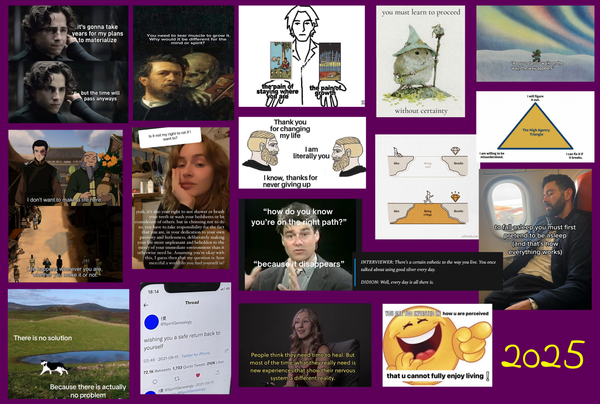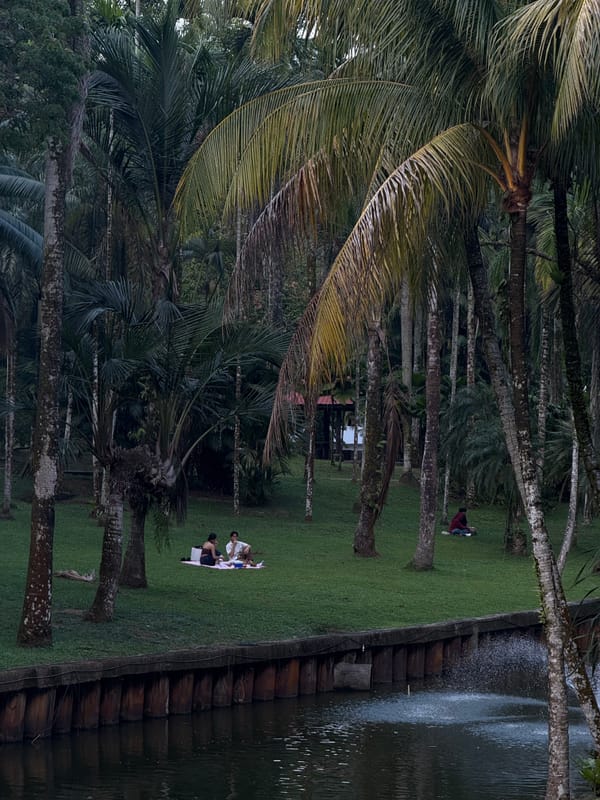thoughts on community
In a world that's obsessed with efficiency, these little "inconveniences" are what actually builds trust and intimacy in a community.
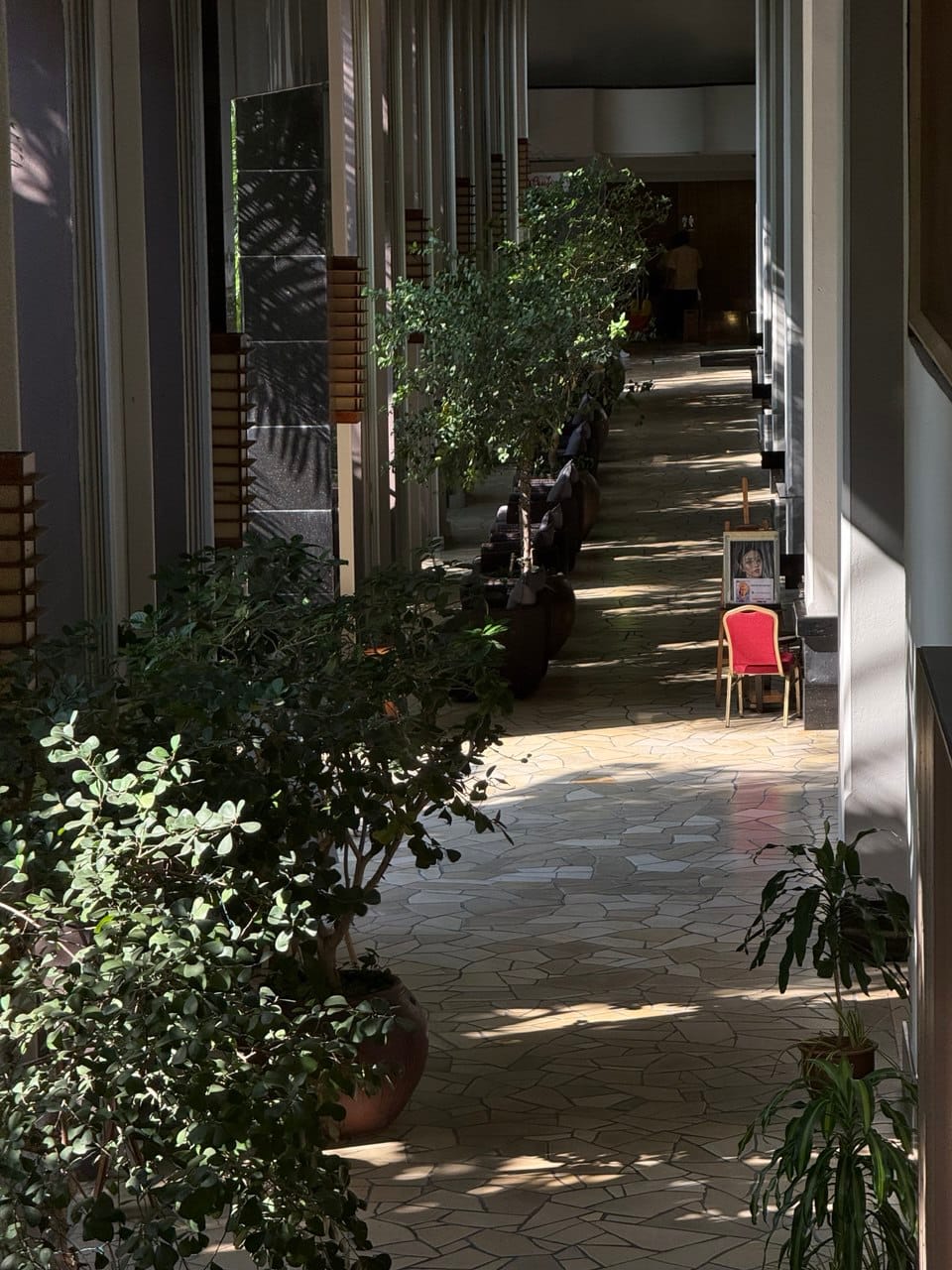
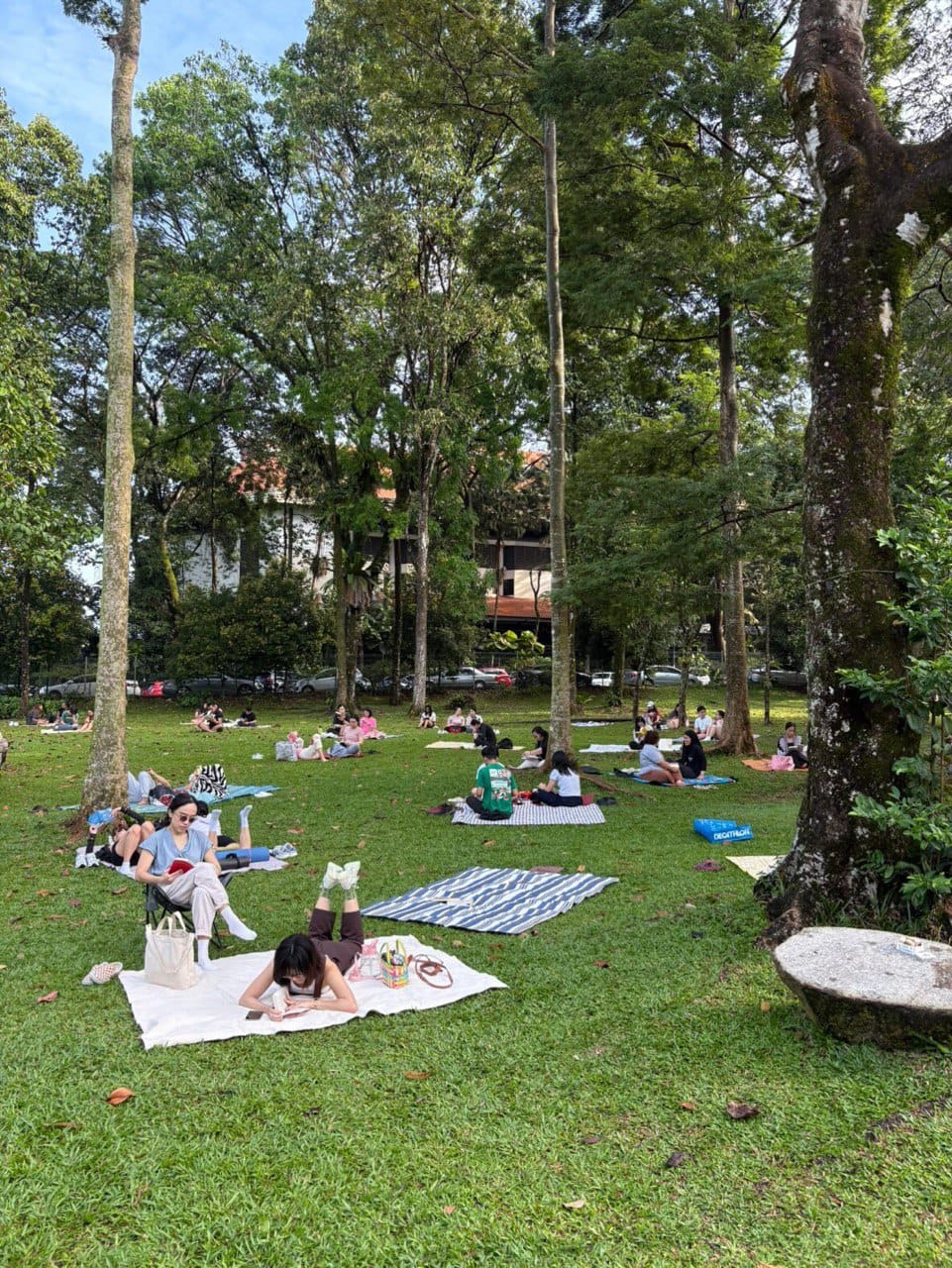
Communities have existed long before technology, but lately I've noticed a rise in new communities in the guise of third spaces. Most of them cater to a specific interest or goal, such as run clubs, book clubs, or even social dining experiences to meet new friends. Even though they allow people to meet new like-minded friends, something feels off. Friends who have attended them expressed disdain because of poor experiences. For example, one felt that a social dinner was messy and directionless, while the other felt ironically left out when new groups formed their own cliques.
The term "community" seems to be loosely used these days. It's easy to conflate a group of people with mutual interests with a real community, without putting in much effort. Just create a group, call it a community, and set up some activities. But community building isn't just about gathering people in one place and expecting them to figure it out themselves. The intention might be there, but hosts will need to set a clear purpose and direction, and design a meaningful experience for their people.
You also see "community" mentioned by many brands or influencers. It doesn't feel authentic to me, more like a marketing buzzword to attract and extract time and money from their "community" instead. In reality, it just sounds like a less aggressive way of naming their followers or consumers. It's not as bad as I put it as they have own (monetary) goals to achieve, but it doesn't feel like something you can rely on.
But I've also seen these types of communities that work well. For example, a friend found a connection in her wellness group, not just from the activity itself but how the members supported each other outside of it. But for me, it's the small, considerate gestures from my immediate circles that feel like real community than most marketed ones.
With its undertones of "warm and fuzzy feelings", I don't doubt the sense of connection and belonging that these communities may provide to people who crave it though, however abstract the form. Ultimately a community provides people a sense of belonging. Biologically it's in our nature to want to belong, because we're social creatures after all.
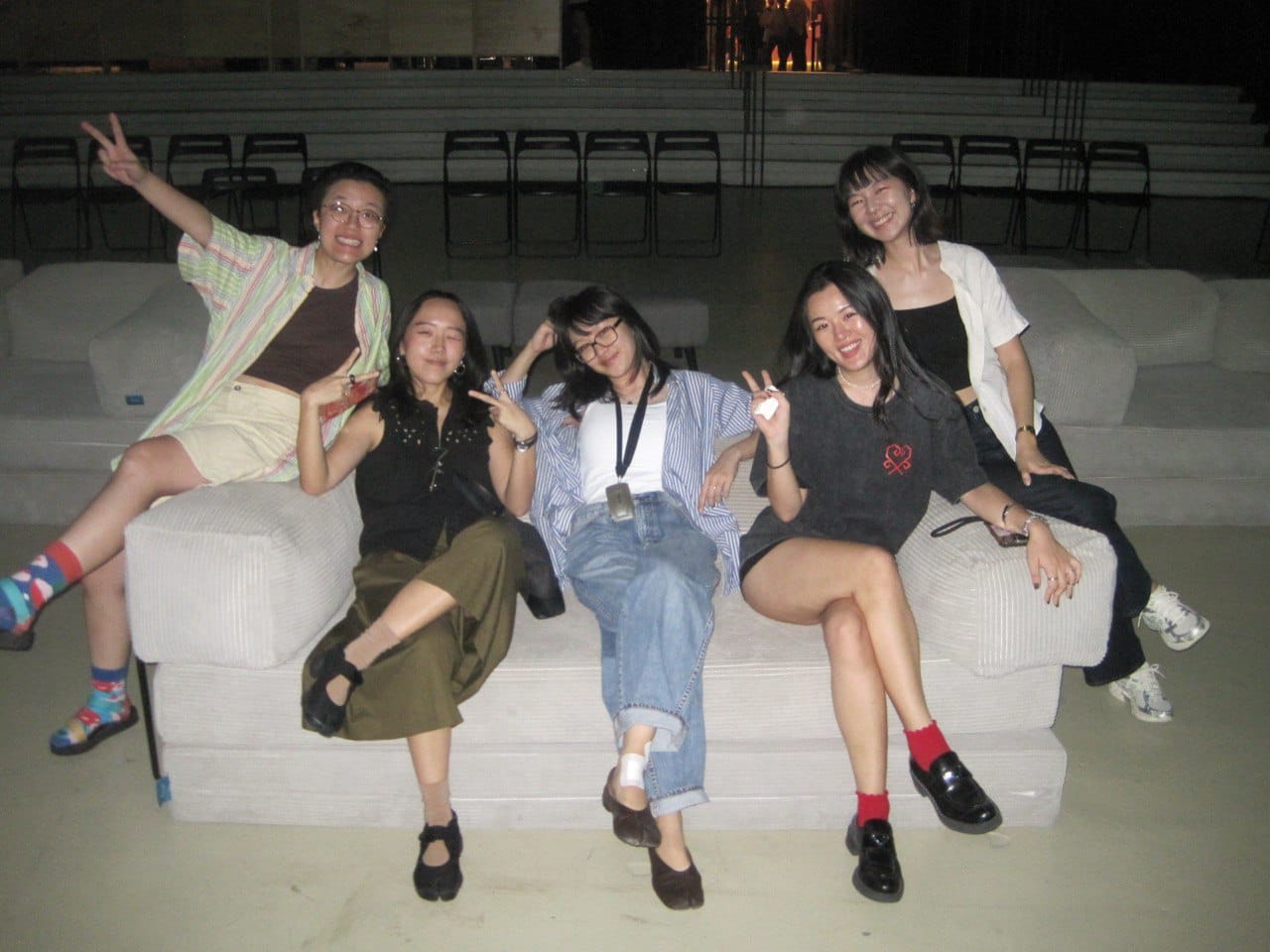
Don't get me wrong, I used to believe community was a gathering of people with shared interests or common goals. But a true community is also "when two or more people share a mutual concern for each other’s welfare". It's when people connect intentionally and meaningfully with each other. It's when they support one another with no expectations of return, counting on generosity. It's mutual care, effort, and accountability. And often, it's already around us – our families, friends, neighbours, the people within our vicinity. It's taking care of our neighbour's dogs when they're away. It's sending our friends off at the airport when they're working overseas. We might forget this, but communities show up in our everyday lives. It's the small but considerate acts of care that show what a genuine connection from a community is.
Even though we may crave and seek connection and belonging, the opposite effect seems to be happening instead. People rather lament in their loneliness than make the effort to see friends or make new ones. What seems to be driving it among us?
When we were confined to our homes during the Covid pandemic, many suffered from loneliness. We only had the means of keeping in touch with each other through our devices. The use of technology helped us stay in touch and distract the loneliness, similar in online communities too. But digital platforms lack the depth of lived, physical experiences.
Then in recent years, a strange phenomena has taken place. Even without barriers to meeting in person, reports of a "loneliness epidemic" have been showing up in media, even citing negative health effects on par with tobacco usage. Whether it's self-imposed solitude or loneliness is another question.
While technology had helped us during the pandemic, this recent research found it to be the leading contributor in loneliness in the US. And I don't think it's unfair to say it might be similar worldwide.
People are more glued to their devices than ever, especially the Gen Z. Perhaps some may have lost touch with social skills because of the pandemic. Perhaps a new lifestyle or habit was formed then, opting the convenience of voluntary solitude (e.g. ordering food in and watching Netflix) and socialising online. It takes little effort to "be part of someone's life" on social media, but it's only really the illusion of connection it provides us with. We post and share about our lives online and interact with others, yet we feel more disconnected than ever. This digital illusion make us forget that it takes effort to participate in the physical world and build a more genuine connection – by showing up. Technology has made everything so efficient and convenient that even making time for friends now feels like an inconvenience.
Maybe we should start practising the art of socialising again, like small talks with strangers, talking to our local baristas, giving compliments people etc. Or you know, making plans to hang out with our friends more.
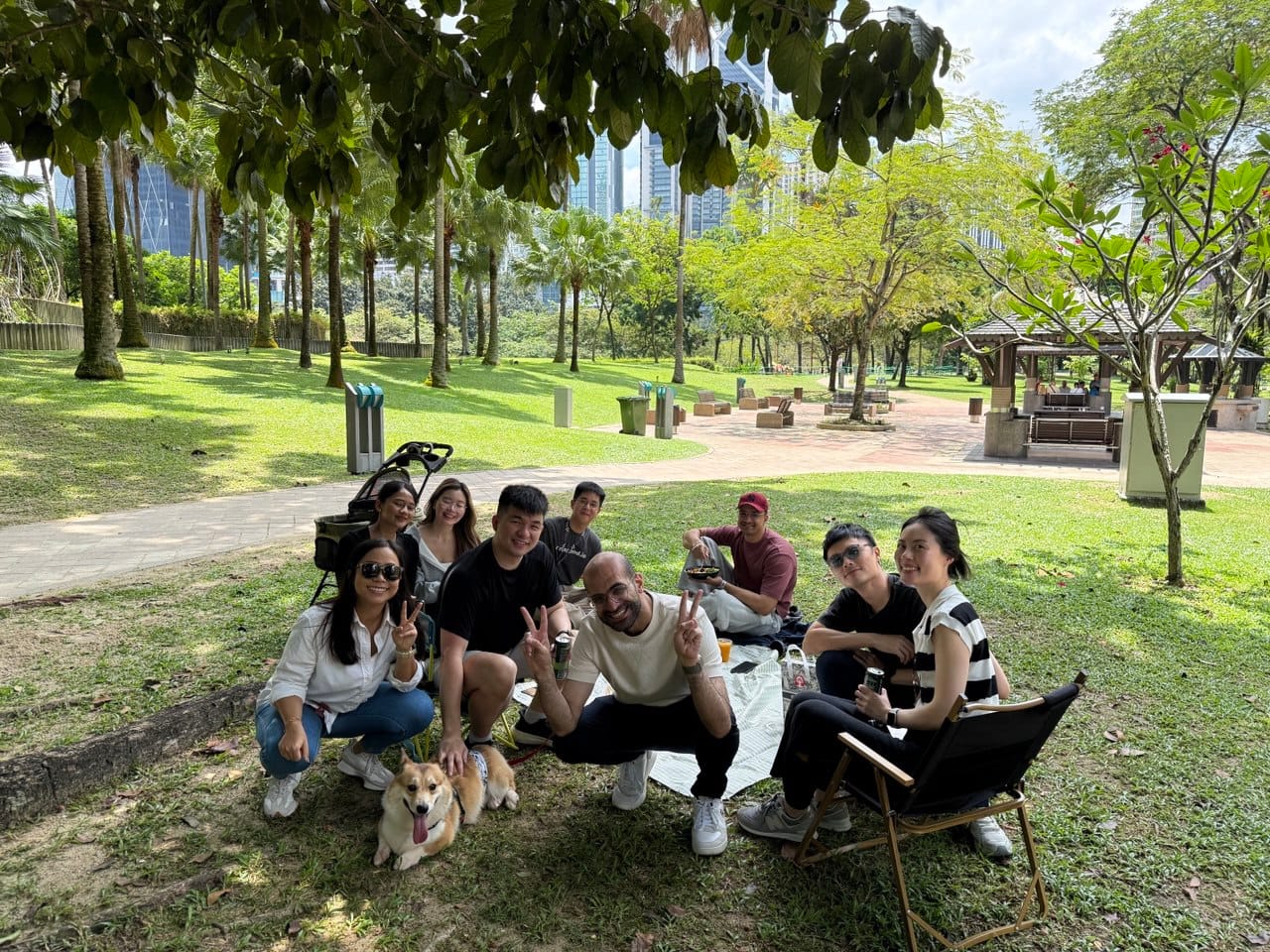
Community forms more naturally at school and work places because we see the same people every day and shared goal tying us together. Beyond that, unless there's a strong bond, maintaining connection takes deliberate effort. Adult friendship is harder but no one wants to take the initiative, or everyone is busy all the time. Understandably, we have other priorities (work, family, healing, growing), which is why many of us default to the convenience of online connection instead. Less communication may not mean less love from your community, so check in with them to see if they're doing okay.
But that's the thing: community has a cost, and it's inconvenience. And maybe that's the beauty of it: Good things and building trust take effort (and effort is proof of care even when it's inconvenient), which includes sacrificing peace to show up for your friends and risking social discomfort or even rejection. Living with some form of community is part of what makes life more fulfilling, and discomfort is the price that's worth paying.
In a world that's obsessed with efficiency, these little "inconveniences" are what actually builds trust and intimacy in a community.
I'd been meaning to form a new community, with the goal of pursuing self-discovery (in a nutshell). I hosted a weekly writing circle in June with close friends, and learned the effort it takes to be a good host. But I hesitate to expand it to the public or even continue with friends, fearing I can't maintain the commitment or the effort of being a good host.
I think it comes back to my intention: what do I want this community to be? Do I want a wider scale community? For now I'm comfortable with my immediate circle, because there's that level of intimacy I want to nurture. I think it's what many communities try to imitate, but may not be able to fully succeed in replacing. Maybe communities doesn’t need to be reinvented (because maybe I'm just overthinking) – it just needs to be practiced, with care.
Whatever form of community you decide to be part of, make sure to make the conscious effort to discern what it truly means to you and that they hold space for you. A community is something we participate in, not consume. To have a village, you must be willing to be a villager. From there, you'll find the community that you're looking for.
some notes and questions I want to address later on (that didn't really fit in):
- Whether the role of physical space (or any third spaces) is necessary to form a community, or is it simply the connection wherever they happen?
- Whether or not it should be inclusive or exclusive depends on the purpose of the community. Inclusivity may feel like it's gatekeeping from a place of privilege, but members are more aligned with each other. Exclusivity is open to everyone but might attract the wrong crowd if you're not too careful.
- Interestingly people were reported of already being lonely before the outbreak. Maybe it was underreported then, since there is deep shame in admitting it. The pandemic made it more accepting.
- The principles set in the The Art of Gathering


